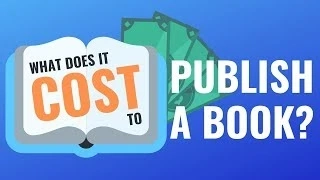How much it will cost and if it is worthwhile are probably two of the greatest concerns on an author's mind when it comes to having a professional urban book publisher. Depending on the kind of publisher, the services they provide, and the degree of expertise of the author, the cost of working with a book publisher might vary significantly.
The advance is one of the most expensive expenses incurred while dealing with a publisher. An advance is money given to an author by a publisher before the book is released. This cash is often given in return for the book's rights and may be used to pay for the expenses associated with the book's authoring, editing, and promotion. For first-time writers, advances may vary from a few thousand dollars to hundreds of thousands of dollars.
In addition to receiving an advance, writers could also be expected to pay for other services like marketing, design, and editing. Depending on the publisher and the services they provide, these expenses might vary greatly, but they can soon mount.
Is it worth it, then? That depends on the objectives and resources of the author. For some writers, getting their work published by a conventional publisher is worth the money because of the recognition and visibility it brings. Others may find self-publishing to be a more economical choice.
It's also important to remember that conventional publishing is not a guarantee of financial success, even if it may help writers reach a larger audience and provide them access to tools for professionals. Many conventionally published works do not recoup their advance, which means that the author does not get any more royalties until the advance has been repaid.
The author's ambitions and financial means should ultimately choose whether or not to collaborate with a publisher and the accompanying expenditures. Before choosing a course of action, it's crucial to do your homework and weigh your alternatives.
The cost of printing and distribution is another expense to take into account when dealing with a publisher. The printing and distribution of a book are often handled by publishers, however the price for these services may be charged to the author. For instance, some publishers could demand that writers buy a particular quantity of discounted copies of their own books, which can add up rapidly. Furthermore, some publishers could demand that writers pay for the delivery and processing of their book.
Furthermore, it's essential for writers to comprehend the conditions of their agreement with the publication. Many contracts with conventional publishers include expiration dates, and beyond that point, the author may not be able to keep the rights to their work. This implies that the author won't be allowed to publish the book with other publishers or in other formats.
However, for some writers, self-publishing might be a more affordable choice. With the support of self-publishing sites like Amazon Kindle Direct Publishing, Create Space, and Draft2Digital, writers can distribute their books without having to pay the hefty prices associated with conventional publishing. The expenses associated with self-publishing, such as those for editing, design, and marketing, should be kept in mind by writers.
Additionally, self-publishing lacks the same recognition and publicity as getting published by a formal publisher. Self-published writers may find it more difficult to become well-known and connect with a large audience.
In conclusion, the prices associated with working with a book publisher might differ significantly, thus it's critical for writers to fully grasp all charges before making a choice. Traditional publishing comes with hefty expenses and little assurance of financial success, even while it may provide validation, visibility, and access to professional tools. Although self-publishing might be less expensive, it doesn't provide the same level of recognition and visibility. Working with a publisher or going it alone should ultimately depend on the author's objectives and financial capabilities.


